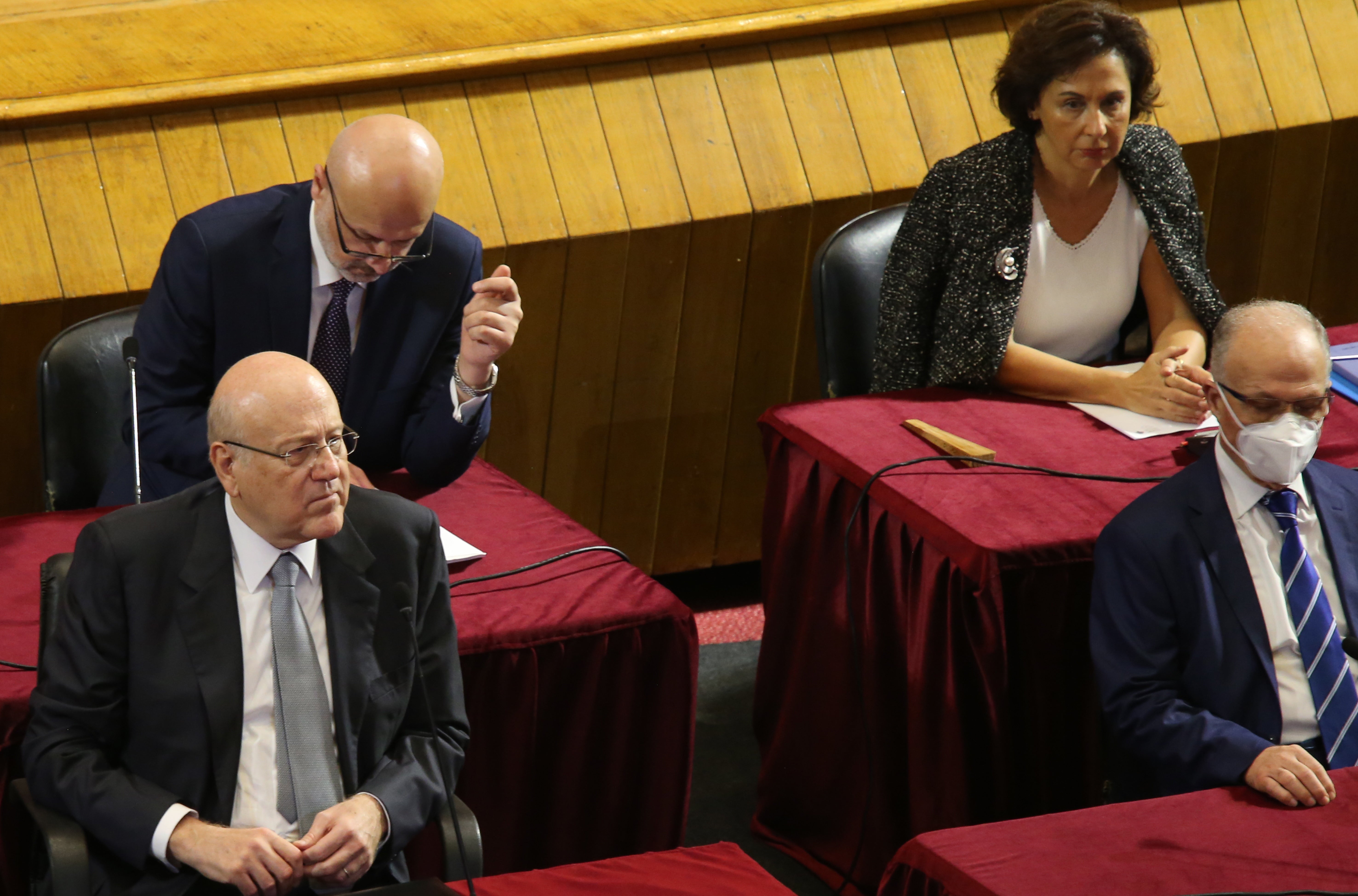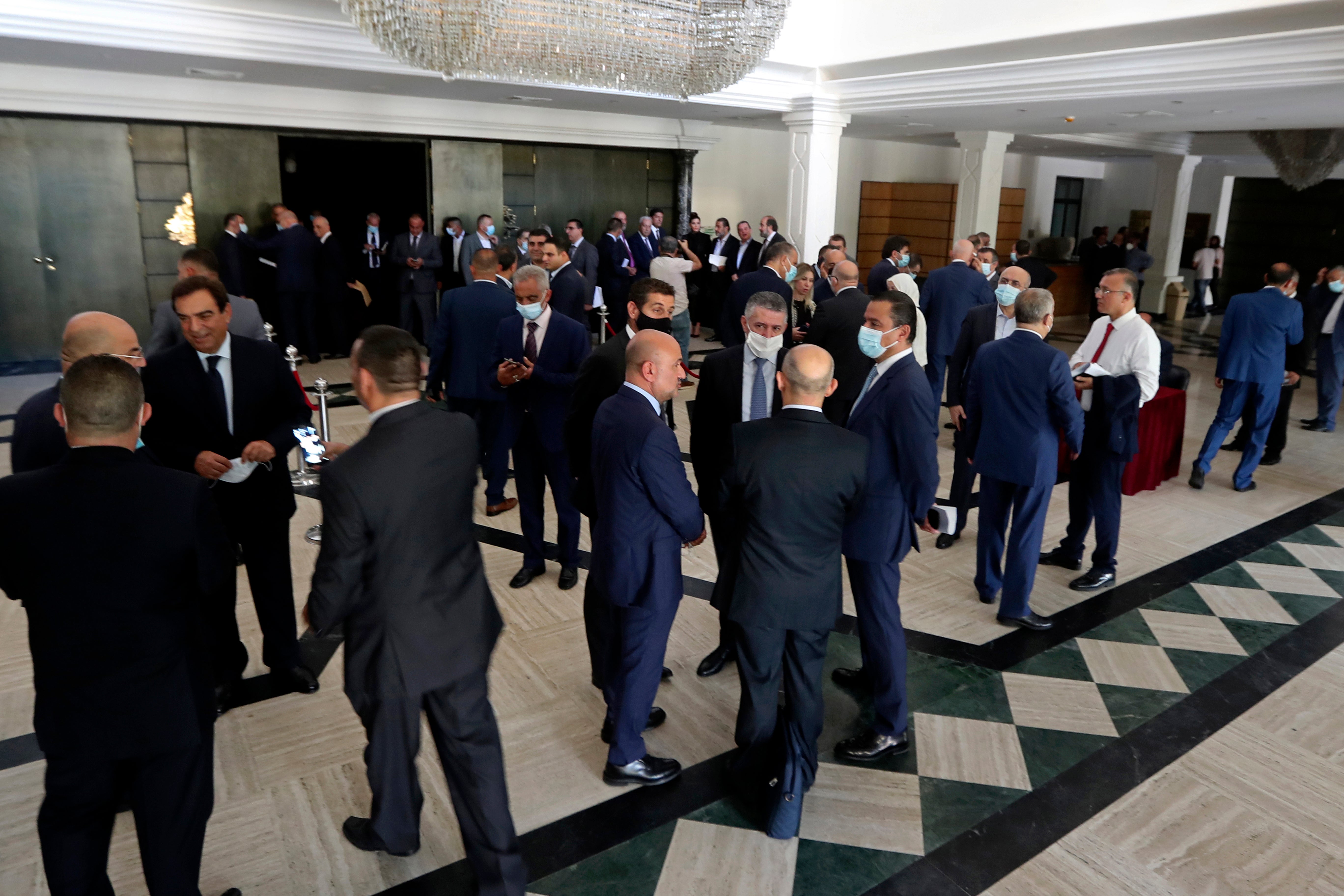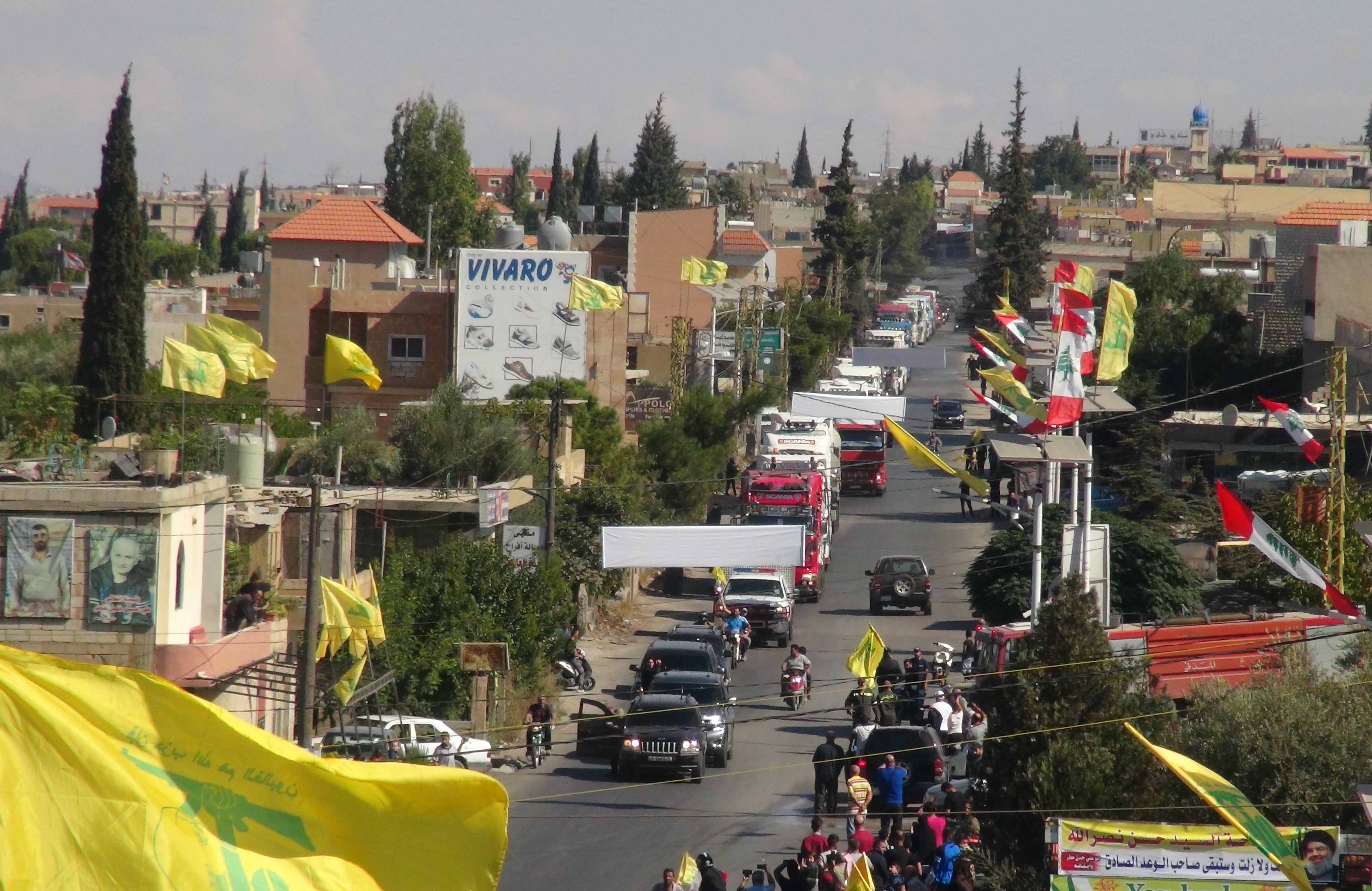Amid power cuts, Lebanon’s new government pledges to begin process of recovery after parliamentary vote
Najib Mikati, the new prime minister, pledged to get to work immediately to halt the collapse and ease the day-to-day suffering of the Lebanese, starting with a loan from the IMF, writes Bel Trew in Beirut


Breaking a year of political deadlock, Lebanon’s long-awaited cabinet is set to begin the impossible task of tackling the country’s unprecedented economic collapse after the body was approved by parliament in a session marred by power cuts and broken generators.
Monday’s meeting was already delayed by an hour because of power outages: Lebanese journalists shared footage of what appeared to be a diesel truck pulling up to refuel the generator to keep the session going.
Lebanon’s prime minister Najib Mikati, a billionaire tycoon, then struggled to read out the new policy programme as he was interrupted by the speaker Nabih Berri, who asked him to skip over some parts as he was not sure how long the electricity would remain on.
Lebanon is in the grips of one of the world’s worst economic crises in the last 150 years according to the World Bank. Crippling fuel shortages have led to rolling blackouts: most homes typically receive just an hour or two of state power a day, which has begun to impact water supply and telecommunication networks.

Throughout the disaster the country has remained rudderless as the ruling elite have squabbled for over a year on the make-up of a new cabinet which was finally approved on Monday. Pressure is now on the 24 new ministers to ram through reforms, unlocking a potential International Monetary Fund (IMF) loan and billions of dollars of foreign aid.
“From the heart of the suffering of Beirut ... our government has emerged to light a candle in this darkness," Mikati said, addressing lawmakers at the session.
He pledged to get to work immediately to halt the collapse and ease the day-to-day suffering of the Lebanese, starting first with a loan from the IMF. The cabinet won the vote with a majority of 70, 85-15.
“What happened here today with the electricity outage pales in comparison to what the Lebanese people have been suffering for months,” Mikati added.
The World Bank has accused the ruling elite of being responsible for the country’s spectacular financial collapse which is grounded in decades of flagrant corruption and mismanagement.
Despite the gravity of the situation, it has taken a year to form a new cabinet after the former government resigned shortly after an August explosion at Beirut port. The blast destroyed swathes of the capital city, compounding Lebanon’s woes.
What happened here today with the electricity outage pales in comparison to what the Lebanese people have been suffering for months
The delay has cost Lebanon a lot.
Billions of dollars of aid and a key IMF loan were conditional on the formation of a new government pushing through real reforms, including restructuring the banking sector and lifting the official dollar peg, none of which was completed.
The creation of the cabinet is seen as one step towards that, as is a new contract with restructuring consultancy Alvarez & Marsal (A&M) to carry out a forensic audit of the central bank: one of the IMF’s key conditions. Previous attempts to put through an audit have failed.
But in many ways the damage has already been done.
With foreign currency reserves plummeting to dangerously low levels, the cash-strapped Central Bank has said it is no longer able to support its $6bn subsidy programme.
On Friday, Lebanon’s energy ministry further raised gasoline prices by nearly 40 per cent, effectively narrowing its fuel subsidy. Sources at the central bank told The Independent they expected all the subsidies to be lifted by September which could have a devastating knock-on effect on prices.
Right now over 80 per cent of the population lives in “multi-dimensional poverty” according to the UN’s latest report on the country.

Meanwhile the head of the World Health Organisation, Dr Tedros Adhanom Ghebreyesus, said that petrol and medicine have become so scarce that hospitals have had to reduce their capacity by 50 per cent, in the middle of a pandemic.
Solutions to the multitude of problems have been difficult to come by.
To plug the gap in diesel needed to run generators for key institutions like hospitals, powerful Lebanese militant group Hezbollah arranged a transfer of Iranian fuel into the country via an illegal crossing point with Syria, without state authorisation and in violation of US sanctions.
As a diplomatic spat with the US has worsened, Lebanese officials have been quick to distance themselves from the shipment which local media said was a trial, and so only enough to power one hospital for a month.
The country’s new energy minister told The Independent the ministry had nothing to do with the deal. Mr Mikati, whose government includes Hezbollah-backed ministers, assured CNN it was “a violation of Lebanese sovereignty” that he hoped would not mean Washington would hit Lebanon with sanctions.






Join our commenting forum
Join thought-provoking conversations, follow other Independent readers and see their replies
Comments